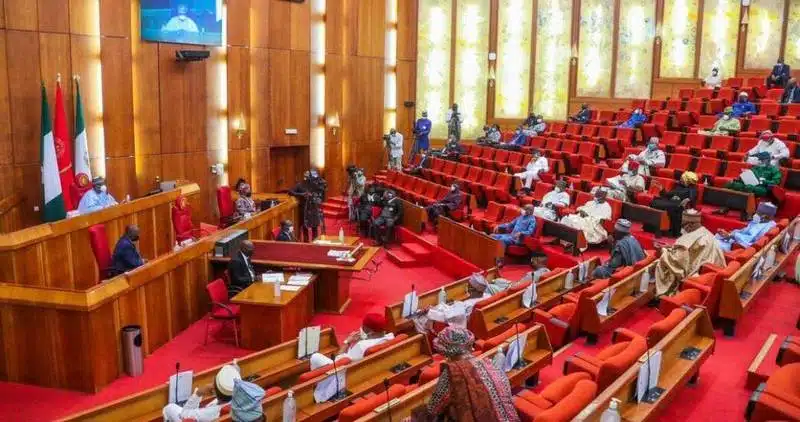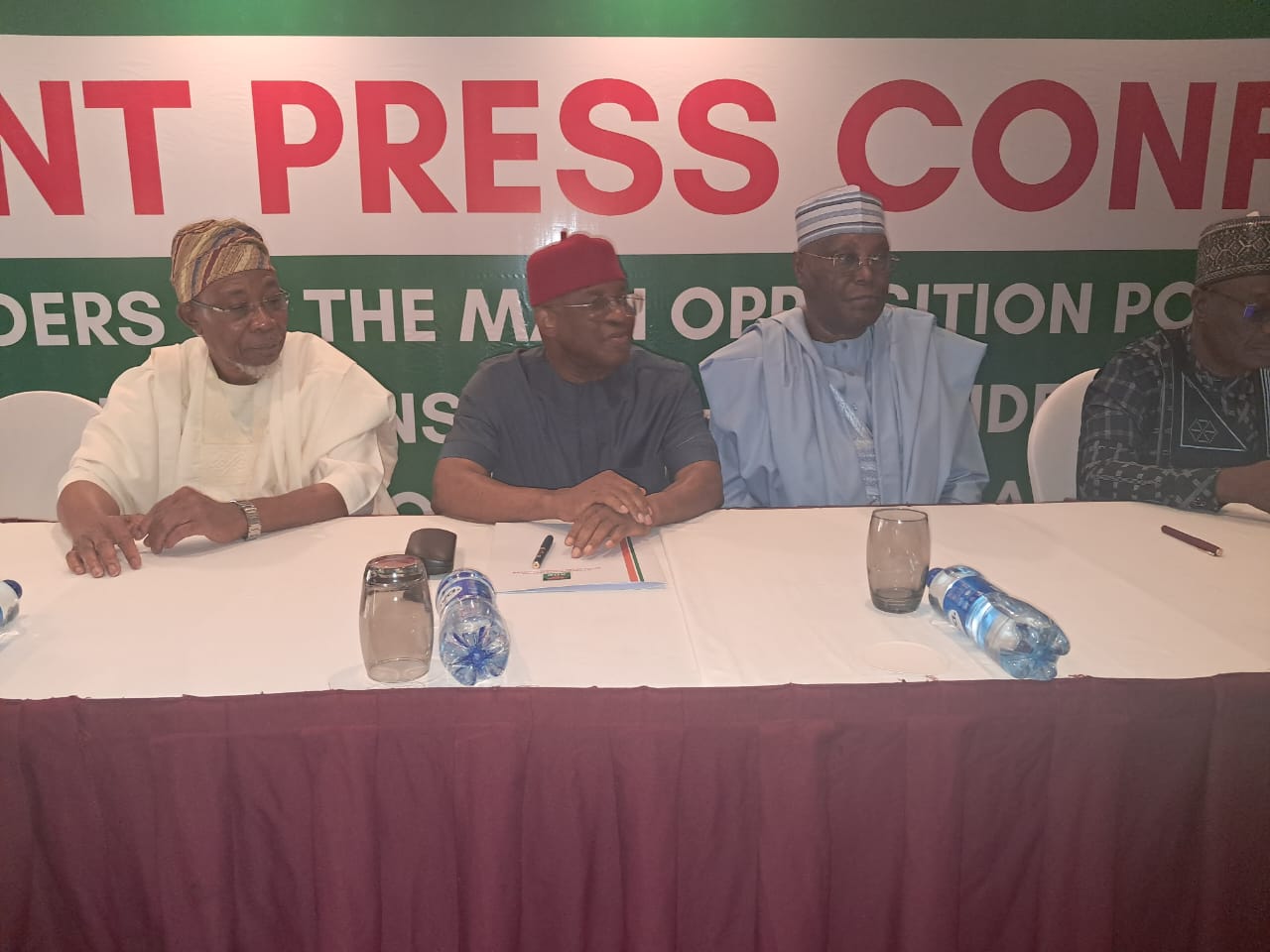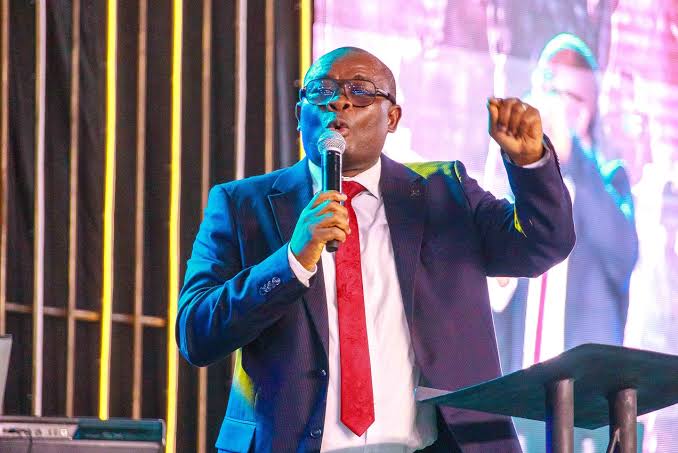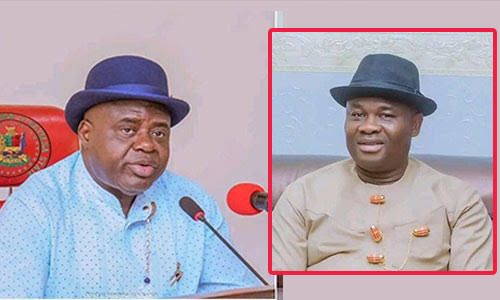Politics
Tinubu’s Policies Saved Nigeria, Soludo Claims

Anambra State Governor and former Central Bank of Nigeria (CBN) chief, Professor Charles Chukwuma Soludo, has thrown his weight behind the economic reforms initiated by President Bola Ahmed Tinubu, describing them as bold interventions that saved Nigeria from imminent economic collapse.
Speaking on Thursday at The Platform, a special Democracy Day symposium hosted by The Covenant Nation in Lagos, Soludo acknowledged the hardship Nigerians have faced but insisted that the current administration’s decisions were necessary to reset a stalled economy.
“I know I may disappoint some who expect me to criticise the government or present a new economic blueprint,” Soludo said to a packed audience in the church auditorium at Iganmu. “But I must say this without hesitation: the audacious structural reforms by President Tinubu’s administration have rescued the Nigerian economy from a tipping point.”
Since taking office in May 2023, President Tinubu has embarked on a series of economic overhauls, most notably the removal of the decades-long petrol subsidy and the unification of Nigeria’s multiple exchange rates. While these policies have sparked inflationary pressures, affecting everything from food prices to transport costs, Soludo argues that inaction would have been far worse.
“We were at a place where the economy could barely move,” Soludo explained. “Subsidies were unsustainable, and the foreign exchange market was riddled with distortions. These reforms may be painful now, but they have allowed the economy to breathe again.”
Soludo, who served as CBN Governor between 2004 and 2009, is known for his directness when it comes to economic matters. On Thursday, he used the Democracy Day platform to both affirm the necessity of the Tinubu administration’s policies and challenge fellow economists to move beyond surface-level critiques.
“There is still a lot to be done, yes. But we must give credit where it is due,” he said. “The international community, the World Bank, IMF, and even global media outlets like the Financial Times, are all watching and acknowledging that we are finally making tough but overdue decisions.”
Recalling his own time in office, Soludo shared that he once rejected a World Bank loan due to terms he considered unfair, yet he emphasized that Nigeria’s current reform direction aligns with the assessments of these global institutions.
“When the World Bank criticises a government, many rush to quote them. But when they praise reforms, some dismiss them as neoliberal or out of touch. We can’t cherry-pick. We must be intellectually honest,” he stated.
In a moment of candor, Soludo referenced a friend who once told him, “The past is always easy, especially if you’re not the one who lived it.” He used the quote to urge critics to avoid easy nostalgia and instead focus on offering rigorous, fact-based alternatives to current policies.
The Platform event drew a diverse gathering of high-profile Nigerians, including former Independent National Electoral Commission (INEC) Chairman Attahiru Jega, former Minister of Works and Housing Babatunde Fashola, and other government officials and policy influencers. The event served as one of the major highlights of the country’s Democracy Day celebrations, commemorating the historic June 12, 1993, elections.
Soludo’s remarks were particularly poignant on a day meant for national reflection.
“Yes, Nigerians are suffering,” he admitted. “But let us not forget that many of these reforms are about laying a foundation, not for short-term applause but for long-term prosperity.”
He also urged President Tinubu and his team not to waver in the face of growing public discontent.
“These are not easy choices. But leadership is about doing what is right, not what is easy. My advice to the President: stay the course. Engage citizens, listen more, and communicate the vision clearly.”
The governor’s balanced stance, acknowledging present struggles while defending difficult decisions, stood in contrast to the often polarised national discourse around Tinubu’s economic strategy. His message was clear: reform is never painless, but it is sometimes the only path to renewal.
As Nigeria continues to wrestle with rising inflation, a weakened naira, and widespread public discontent, Soludo’s intervention serves as both a vote of confidence and a call for responsible governance and civic engagement.
“We have to go deeper. Social media hot-takes won’t solve our economic problems. Let’s challenge each other, leaders and citizens alike, to think critically and act courageously,” he concluded.
Ripplesnigeria.com
Politics
BREAKING: “Serial Disrespect” Sparks Drama As Senate Order Arrest Of Tinubu’s Appointee

The Senate has asked President Bola Tinubu to immediately remove the Registrar General of the Corporate Affairs Commission (CAC), Hussaini Ishaq Magaji (SAN), from his office.
As reported by Nigerian Tribune, the Senate committee on finance, while passing a resolution in Abuja on Thursday, February 26, accused Magaji of failing to honour the upper legislative chamber’s invitations to account for the finances of his agency.
Senator Sani Musa, the chairman of the committee, said:
“He (Magaji) refused on so many occasions to honour our invitation to appear before this committee.
“We have issues with the reconciliation of the revenue of CAC.
“Each time we invite him, he gives us excuses.
” Magaji was appointed to this position by President Tinubu on October 13, 2023.
As the registrar-general of the CAC, Magaji is expected to work for the development and regulation of corporate affairs in Nigeria.
Meanwhile, President Tinubu on Wednesday night, February 25, formally urged the Senate to begin the process of amending the 1999 constitution to provide for the establishment of state police, declaring that Nigeria must urgently restructure its security architecture to confront terrorism, banditry and insurgency.
Speaking at an interfaith breaking of fast with the leadership and members of the Senate at the State House, Abuja, the president stated that the time had come for lawmakers to “start thinking” about embedding state policing in the constitution to enable governments at subnational levels better secure their territories.
The Nation quoted President Tinubu as saying:
“Nigeria is extremely challenged, we are facing terrorism, banditry, insurgency, but you never failed to make a right response to these calls.
“What I will ask for tonight is for you to start thinking how best to amend the Constitution to incorporate the state police for us to secure our country, take over our forests from marauders, free our children from fear.”
Politics
Opposition Leaders Urge N’Assembly To Begin Fresh Electoral Act Amendment

Leaders of the African Democratic Congress and the New Nigeria Peoples Party have called on the National Assembly to commence a fresh process to amend the Electoral Act.
Speaking on behalf of the opposition at a press conference in Abuja on Thursday, NNPP National Chairman, Ajuji Ahmed, urged federal lawmakers to expunge all objectionable provisions contained in the Act.
Prominent opposition figures at the meeting included former Senate President David Mark; NNPP chieftain Buba Galadima; former Vice-President Atiku Abubakar; and the 2023 presidential candidate of the Labour Party, Peter Obi.
Also in attendance at the Lagos/Osun Hall of Transcorp Hilton, Abuja, were the ADC National Secretary, Rauf Aregbesola; former Rivers State Governor Rotimi Amaechi; and the party’s National Publicity Secretary, Bolaji Abdullahi, alongside other stakeholders.
Others present included Senator Dino Melaye, former ADC National Chairman Ralph Nwosu, and former Cross River State Governor Liyel Imoke, among several dignitaries.
Politics
Assembly Confirms Popular Redeemed Pastor As Deputy Governor

The Bayelsa state house of assembly has approved the appointment of Peter Akpe as the deputy governor of the state.
Akpe, a pastor, served as chief of staff to Douye Diri, governor of Bayelsa, prior to his nomination.
Ordained clergy by the Redeemed Christian Church of God (RCCG), Akpe has had a career spanning the civil service and politics.
He served in the Rivers and Bayelsa state civil services before transitioning fully into politics.

Akpe was a two-term member of the Bayelsa state house of assembly from 2011 to 2019, serving as majority leader throughout his stint in the legislature.
He also served as commissioner between 2008 and 2011 under the Seriake Dickson administration.
The approval clears the way for his swearing-in as deputy governor.
Akpe’s appointment follows the death of Lawrence Ewhrudjakpo, the former deputy governor, who passed on last December.
-

 Politics2 days ago
Politics2 days agoAssembly Confirms Popular Redeemed Pastor As Deputy Governor
-

 Foreign2 days ago
Foreign2 days agoCabinet Reshuffle: President Sacks Finance Minister
-

 Business2 days ago
Business2 days agoJUST IN: 13 Banks May Shut Down In March As CBN Confirms 20 Safe For Recapitalisation Deadline
-

 Politics12 hours ago
Politics12 hours agoBREAKING: “Serial Disrespect” Sparks Drama As Senate Order Arrest Of Tinubu’s Appointee
-

 Politics12 hours ago
Politics12 hours agoOpposition Leaders Urge N’Assembly To Begin Fresh Electoral Act Amendment
-

 Opinion12 hours ago
Opinion12 hours agoEdo State To Spend N1billion On Armoured Car For Speaker, N4.6billion On Vehicles For Lawmakers




